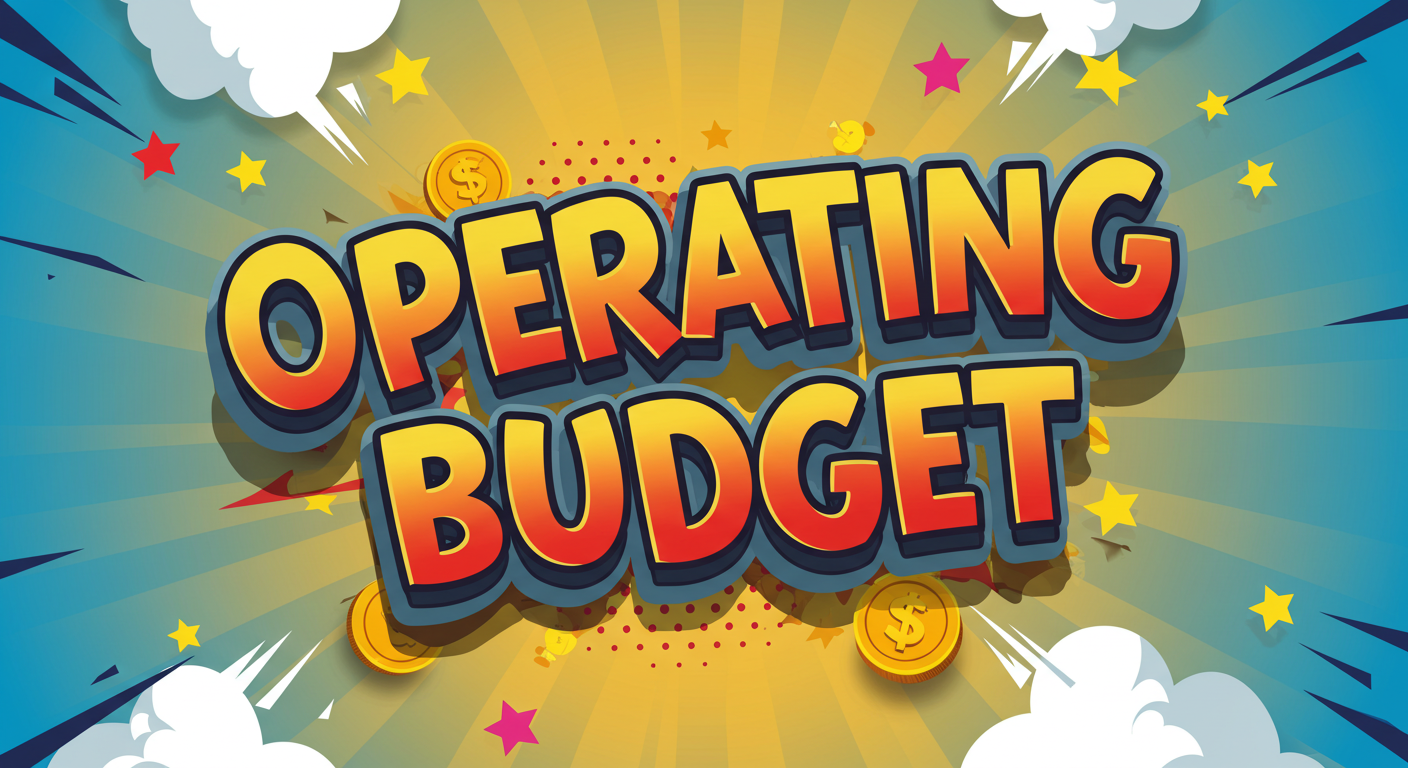Operating Budgets in Property Management: A Complete Guide
An operating budget is a financial plan that outlines the expected income and expenses associated with managing a property over a specific period—usually one fiscal year

Whether you own a single rental or manage hundreds of units, the health of your property depends on one thing: your operating budget. In the world of property management, the operating budget is the backbone of your financial strategy. It tells you where your money’s going, what you can expect to earn, and how to make sure your properties stay profitable, well-maintained, and legally compliant.
This guide breaks down exactly what an operating budget is, why it matters, how to build one, and how it connects to your property’s performance and value. Whether you're a landlord, HOA manager, or investor, this is your roadmap to financial clarity.
What Is an Operating Budget?
An operating budget is a financial plan that outlines the expected income and expenses associated with managing a property over a specific period—usually one fiscal year.
How It Differs from Other Budgets:
- Operating vs Capital Budget: Operating budgets cover daily, recurring costs. Capital budgets fund long-term improvements like roof replacements (see this GFOA guide to capital expenditures for official best practices).
- Operating vs Master Budget: A master budget includes all financial activity across an organization. Operating budgets are a key component within that structure.
Who Uses Operating Budgets?
- Landlords (residential and commercial)
- Property management companies
- HOA and nonprofit housing administrators
- Real estate investors and syndicators
Why Operating Budgets Matter in Property Management
Your operating budget isn’t just a spreadsheet—it’s a decision-making tool that directly impacts profitability.
Key Benefits
- Improves NOI: Net Operating Income (NOI) = Gross Revenue − Operating Expenses. Better budgeting = stronger NOI.
- Boosts Property Value: NOI feeds into the cap rate formula used for appraisal.
- Prevents Surprises: Planning for expenses helps you avoid emergency repairs and cash shortfalls.
- Supports Financing: Lenders rely on operating budgets for refinancing or acquisitions.
- Ensures Legal Compliance: HUD, IRS, and local codes all require accurate expense tracking. For specific guidelines, see the IRS publication for rental property on expense and income reporting.
Data Points (Cited Authoritative Sources)
- Operating expenses can total up to 75% of a property’s development cost over time (Harvard JCHS, Deep Dive: Net Operating Income Explained)
- Reducing annual OpEx by just 10% can increase property value by 5–7% (NAREIT research, Understanding Cap Rates)
- Turnover costs typically run $3,000–$5,000 per unit (IREM Knowledge Library, Tenant Turnover Cost Analysis)
- Expenses commonly eat 35–50% of gross income: IRS industry average reference
What’s Included in an Operating Budget
Income Projections
- Gross rent
- Pet fees, parking fees, utility reimbursements
- Concessions and vacancy losses
Expense Categories
- Fixed Costs: Property taxes, insurance, management fees
- Variable Costs: Maintenance and repairs, utilities, turnover costs, supplies and equipment
- Administrative: Software, licenses, accounting fees (Operating Expense details)
- Contingencies: Emergency repair fund, legal or regulatory costs
How to Build an Operating Budget (Step-by-Step)
- Gather Data: Last 2–3 years of financials, vendor contracts, utility bills, maintenance logs
- Forecast Income: Adjust rent for market rates and vacancies, include additional income sources
- Estimate Expenses: Itemize fixed and variable costs, factor in inflation
- Build in Contingencies: 5–10% buffer for unexpected costs
- Review & Approve: Review line-by-line and get owner/board sign-off
- Monitor and Adjust: Monthly variance analysis, quarterly forecast updates (NOI Calculator)
Examples and Use Cases
- Small Landlord (4-Unit Rental): Use a simple spreadsheet, focusing on taxes, insurance, and repairs
- Mid-Size Manager (100-Unit Multifamily): Software-based budgeting, includes payroll, CAM, reserves
- Case Study: An investor reduced OpEx by 12% after switching to zero-based budgeting, increasing NOI and property valuation by $450K (see NAREIT links above for how cost reductions feed property value growth).
Operating Budget vs Capital Budget
| Feature | Operating Budget | Capital Budget |
|---|---|---|
| Purpose | Daily operations | Long-term improvements |
| Duration | 1-year cycle | Multi-year cycle |
| Examples | Maintenance, utilities | Roof, HVAC, plumbing overhaul |
Capital investments can lower OpEx (for example, new HVAC = lower energy bills).
What Qualifies as a Capital Improvement? or review official guidelines for establishing renewal and replacement funds.
KPIs and Metrics to Watch
- Operating Expense Ratio (OER): OpEx / Gross Income
- NOI: Gross Income − Operating Expenses (NOI Guide)
- Variance: Budget vs Actual
- Occupancy Rate: Impacts income reliability (IRS Portfolio Expense Ratios)
- Reserve Coverage: 3–6 months recommended (See NARPM best practices)
Common Mistakes and Misconceptions
| Misconception | Reality |
|---|---|
| Rental income covers everything | Expenses eat 35–50% of gross income (IRS guidance) |
| Only big portfolios need budgets | Solo landlords benefit, too (LandlordDoc: Should You Manage Your Own Rental Property?, NARPM FAQ) |
| Operating = Capital expenses | They're separate and treated differently (US DOI Guide) |
Frequently Asked Questions
What’s the difference between fixed and variable expenses?
Fixed costs stay the same (like taxes). Variable costs change based on usage (like utilities).
How is an operating budget different from a capital budget?
Operating = day-to-day costs. Capital = big, long-term upgrades (LandlordDoc: Capital improvements).
How do I build an effective operating budget?
Start early, use real data, and adjust monthly (NOI Calculator).
What should be included in a property management budget?
Everything from income to admin fees, repairs, taxes, and reserves (IRS Publication 527).
Why is this important?
Accurate budgets reduce risk, improve cash flow, and increase your property value (Understanding Cap Rates).
Conclusion
Still budgeting by instinct? Don’t. A smart operating budget gives you control, not just numbers. Use it to drive decisions, improve NOI, and build long-term wealth from your rental properties.
Disclaimer: This article is provided for general informational purposes only and does not constitute legal, financial, or tax advice. Readers should consult with a qualified professional before making decisions related to property management budgeting, financial planning, or compliance.





